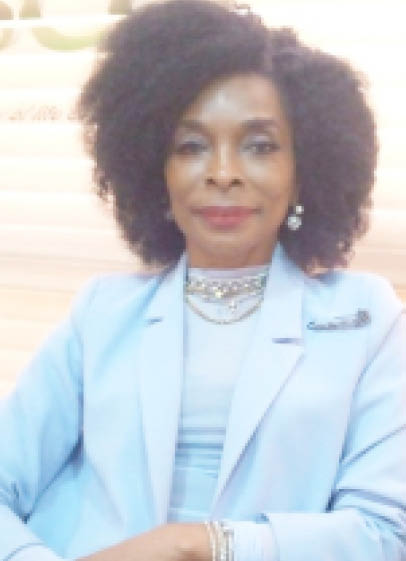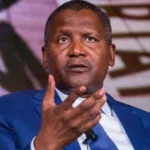Emem Omokaro is the Director General (DG) of the National Senior Citizens Centre (NSCC) which was established pursuant to the National Senior Citizens Centre Act 2017 domiciled in the Ministry of Humanitarian Affairs, Disaster Management, and Social Development. She speaks on the activities of the centre in meeting the needs of older people in Nigeria.
How has it been coordinating the affairs of older people in Nigeria one year after NSCC was established?
This centre stands to initiate and facilitate good and quality lives for older people. This is the first time that Nigeria has a focal agency on aged and older persons. The beauty of it is that it is by legislation. The National Senior Citizens Centre Act 2017 is the premise on which the centre was set up and that shows sustainability. The board was inaugurated and it was a thoughtful and technical board. The members represent the major MDAs, and of course Civil Society Organisations (CSOs), and then professional bodies. It has been exciting and challenging. Exciting because it took many years of advocacy in having to constantly call attention to the plight of older persons. It’s exciting that finally Nigeria has come to that place where we can truly say the government recognises the increasing number of older people. This has given the older people and youths an opportunity to have a centre focused on developmental issues concerning them.
Then, on the other hand, it’s been challenging. As you rightly pointed out, nobody handed over the baton to us. Therefore, the foundation that we lay now has to be concrete, very solid and very forthright having in mind the multi-sectoral issues of ageing and understanding that Nigeria has to be put on that path that sees ageing in an optimistic way.
Older people are not beggars, they contribute to and are bona fide members of society. So, the centre has to bring a perspective that’ll be a Nigeria perspective to ageing.
First, we set out to get a National Policy on Ageing. This is one legacy nobody can deny. We have developed a 10-year road map. We are taking time through multi-sectional engagement and consultations. The road map helped us to clearly identify our vision. A Nigeria that is inclusive, where older people can live dignified, secure, happy and healthy lives and are given opportunities to practice what they value. Where their functional capacity declines, they have a right to comprehensive healthcare wherever they choose to live. Issues of ageing are spread across agriculture, social programmes, income security and financial inclusion. We now have a way of bringing in all the sectors—health, transportation, housing, sport, data generation and management, among others—these cut across many MDAs. We have to approach the delivery of our mandate through multi-sectoral engagement partnerships and also through data application. We are scientific in our approach. We want to know their number as the act mandates us to keep records of all older people.
When we talk about multi-sectoral partnerships and data applications; they cut across stakeholders. In each state, we have been able to create engagement mechanisms. The same stakeholders that we used to develop the strategic plan now facilitated the stakeholders’ groups which are now our engagement mechanisms in the states. Our mission is to use these partnerships and data applications to identify their needs and then initiate, facilitate and coordinate meeting those needs. Our approach is intergenerational; focusing on youths so that they can grow old healthily and understand the future that they will create with us. We are changing that perspective – that investment in older people is a waste – we are bringing that perspective that this is an industry. We are sanitising the health and social care industries. Unlike other countries, we don’t have a long-term care system. We are going to change that and we will bring Nigeria to that stage where nobody is afraid to grow old. What we have done is strengthen those structures that we know must carry us. We have project activities from now till 2025. We have identified projects, activities, objectives, justifications, partners, timelines and key performance indicators, and for every one of those we develop monitoring evaluation programmes.
NSCC is setting up a foundation. That roadmap is clear. There is no programme that we have done that older people do not have a say in; that is the structure we are creating, and we have developed our thematic areas.
Data is a challenge in Nigeria and is key to NSCC, what have you done to tackle the challenge?
It’s a challenge because most national surveys are in demand. The people who make the demand focus on their areas. We identified very relevant MDAs to us and the National Bureau of Statistics (NBS) was one of the very first agencies that we visited. We sat with them and requested a technical team and a workbench. They have been in the field, they have so many surveys. We have partnered with them and we have data on older people. The numbers that we are quoting are from NBS. We are looking forward to the next census to confirm the numbers but I have a feeling that the numbers will increase. Now we are working with 14.8 million older people disaggregated for us by NBS. These numbers are broken down per state, urban and rural areas. I have the data of those engaged in entrepreneurship. We have also disaggregated the poor and vulnerable.
We also have a partnership with NIMC which has led to the acceleration in the enrolment of senior citizens and making it age-friendly. They have delivered to us based on our request and the strong partnership that we have developed points of enrolment up to the wards. Older people will soon have smart cards which they can use to access age-friendly services, discounts and banking sector priority services. It is awaiting ministerial approval. We are awaiting the census to have comprehensive data.
What are the dangers of neglecting the elderly people?
It’ll be such a loss. Neglecting is a loss for the family. We need to have an optimistic perception of ageing. You look at an older person as an asset, as somebody who has the expertise considering the years of education, experience, interactions and travels, and sheer wisdom accumulated over the years.
When you look at ageing as optimistic, what you are saying is that I have to keep this man alive, empower him and make sure that his functional capabilities are not impaired because he is of value. So, what that does is that you now see budgets as investments. Where you have a pessimistic notion of ageing, you see the older man as a waste and a consumer and therefore no need to invest in him. What happens is that neglect brings functional decline and leads to vulnerability, incapacitation and then brings a burden on the family and before you know it everybody is carrying a burden of care; then they wish the old people to die.
Just imagine the huge population of incapacitated older persons. A government that is responsible will ensure universal healthcare; will ensure that the older people keep fit and continue to engage and provide an opportunity as NSCC is providing for older persons and retirees to have that landing where they can interact and find opportunities to recreate their roles and find their areas of interest and then identify solutions to several challenges. They can become life coaches to the youths. You can imagine the quantum of experience that Nigeria has, people that have been in diplomacy, war and national harmony, and then we ignore them, but we are changing that. We want to keep our older people empowered, alive and well. We call it experience incubation.
NSCC is a beautiful thing this administration has done, and we are investing in our older persons.
You talk about attitudinal change. What are you doing about the youths that have great grandparents and tag them as witches and wizards and most times maltreat them?
We are running three major campaigns on stopping violence against older people. Dementia is not witchcraft. We have entered into technical partnerships with the National Human Rights Commission (NHRC), Legal Aid Council of Nigeria (LACN), NAPTIP and the likes. When Nigerians see any older person being maltreated, call the toll-free lines. We have the stakeholders and now we have formed partnerships with inter-religious organisations. The ones with the inter-religious organisations are a platform that is really going to help us to address these things.
So far we have some test cases like the trending video of the woman beating her mother. Somebody must know that the life of that old woman means a lot to the federal government. We have gone to the community and the daughter has been apprehended.
What are you doing to address the maltreatment of elderly people that have to spend long hours in queues for pension verification and other activities?
This present administration has done a lot for federal pensioners. They have modernised the system. There is no need for pensioners to travel to Abuja or any other place for verification anymore.
However, the states are not going that line. Some states have paid pension and not gratuity. Where there is lack of payment, suffering and abuse arise. That’s where it concerns us.




